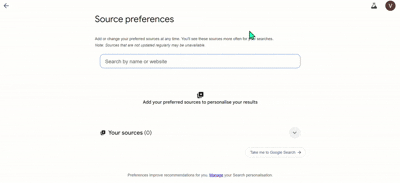
Hi friends! If you’re a Non-Resident Indian living in the U.S., navigating the complex world of investments while minimizing taxes can feel overwhelming. You’re not alone! Many NRIs struggle with understanding which investment vehicles offer the best tax benefits without compromising growth. In this comprehensive guide, we’ll walk you through the top tax-efficient investment options tailored for NRIs in 2025. You’ll learn how to optimize your portfolio, avoid double taxation, and make smart financial decisions that align with your long-term goals. Whether you’re new to investing or looking to refine your strategy, this article will provide actionable insights to help you save on taxes and grow your wealth confidently. Let’s dive in and explore how you can make the most of your hard-earned money while staying compliant with U.S. and Indian tax laws.
Choosing the right tax-efficient investment vehicles for NRIs is crucial for maximizing returns and minimizing liabilities. This guide covers seven options that leverage current tax laws and treaties.
Understanding NRI Tax Status and Investment Implications double taxation avoidance
As an NRI in the U.S., your tax status significantly impacts your investment choices and liabilities. The Substantial Presence Test determines if you’re a resident alien for tax purposes, which affects how you file returns and claim benefits. NRIs often file Form 1040-NR and must understand the India-U.S. tax treaty to avoid double taxation on income. This treaty provides relief mechanisms, such as foreign tax credits, which can reduce your overall tax burden. Proper documentation and timely filings are essential to leverage these benefits and ensure compliance with both countries’ regulations.
Recent updates in 2025 highlight the importance of reviewing your tax status annually, especially if you frequently travel between India and the U.S. Changes in residency can alter your tax obligations and investment strategies. For instance, if you meet the Substantial Presence Test, you might be subject to U.S. taxes on global income, but treaty provisions can protect you from double taxation. It’s advisable to consult a tax professional to assess your status and plan investments accordingly. Understanding your NRI tax status is the foundation for selecting the right tax-efficient investment vehicles and avoiding costly mistakes. Additionally, when planning a return to India, NRIs must address key steps regarding accounts and assets to ensure a smooth relocation process, as detailed in the latest guidance on NRI relocation steps.
Investment implications for NRIs include specific rules on capital gains, dividends, and interest income. For example, long-term capital gains on equities may be taxed differently in the U.S. compared to India, and treaty benefits can reduce these taxes. NRIs should also be aware of the Passive Foreign Investment Company (PFIC) rules, which can impose harsh taxes on certain foreign investments. By understanding these nuances, you can structure your portfolio to minimize taxes and maximize after-tax returns. Proper planning ensures that you don’t miss out on opportunities like tax-deferred growth or exemptions available under the treaty.
Substantial Presence Test Explanation
The Substantial Presence Test is a key criterion used by the IRS to determine if an individual qualifies as a resident alien for tax purposes. It calculates your presence based on days spent in the U.S. over a three-year period. If you meet the test, you’re subject to U.S. taxes on worldwide income, which necessitates careful investment planning to utilize treaty benefits.
Tax Treaty Benefits Overview
The India-U.S. tax treaty offers provisions to prevent double taxation, such as allowing credits for taxes paid in one country against liabilities in the other. This is crucial for NRIs investing in both markets, as it can significantly reduce effective tax rates on investment income.
Form 1040-NR Requirements
NRIs typically file Form 1040-NR to report U.S. source income. This form requires detailed disclosure of investment earnings, and understanding its intricacies helps in accurately claiming deductions and credits under the tax treaty.
7 Tax-Efficient Investment Vehicles for NRIs U.S. investment options for NRIs
NRIs have access to a variety of investment options in the U.S. that offer tax advantages. These vehicles are designed to help you grow your wealth while minimizing tax liabilities through strategies like tax-deferral, exemptions, or credits. From retirement accounts to municipal bonds, each option has unique benefits tailored to different risk profiles and financial goals. In this section, we’ll explore seven top choices, including their tax treatment, risks, and suitability for NRIs. By diversifying across these vehicles, you can build a robust portfolio that aligns with your tax planning objectives for 2025.
When selecting investments, consider factors like liquidity, minimum investment, and how they fit into your overall NRI portfolio diversification strategy. For instance, some options may offer high liquidity but lower tax efficiency, while others provide long-term growth with significant tax benefits. It’s essential to balance these aspects based on your income level, risk tolerance, and time horizon. Consulting with a financial advisor can help you customize a plan that leverages these vehicles effectively. Remember, the goal is to achieve optimal after-tax returns without compromising on financial security.

Choosing the right mix of tax-efficient investment vehicles can enhance your wealth accumulation and provide peace of mind in navigating cross-border tax complexities. For those invested in mutual funds, understanding the tax implications is crucial, with specific rules governing capital gains on equity, debt, and international funds outlined in NRI mutual fund taxation rules.
1. U.S. Municipal Bonds for Tax-Free Income
U.S. municipal bonds are debt securities issued by state or local governments that offer interest income exempt from federal taxes. For NRIs, this can be a attractive option because the interest is often free from U.S. federal income tax, though state taxes may apply depending on the bond’s origin. These bonds typically have low credit risk and provide steady income, making them suitable for conservative investors. However, they may offer lower yields compared to taxable bonds, so it’s important to weigh the tax savings against potential returns. Municipal bonds are ideal for NRIs seeking stable, tax-free income with minimal risk.
2. Tax-Advantaged Retirement Accounts (IRA/401k)
Retirement accounts like Traditional IRAs and 401(k)s allow tax-deferred growth, meaning you don’t pay taxes on contributions or earnings until withdrawal. NRIs can contribute to these accounts if they have U.S. earned income, and they offer a powerful way to save for retirement while reducing current taxable income. Roth IRAs provide tax-free growth and withdrawals, but eligibility depends on income levels. Early withdrawals may incur penalties, so these are best for long-term planning. Retirement accounts are a cornerstone of NRI financial planning, offering significant tax benefits for future security.
3. International Mutual Funds with Tax Efficiency
International mutual funds invest in global markets and can offer diversification benefits for NRIs. They may qualify for foreign tax credits, which allow you to offset taxes paid to other countries against U.S. liabilities. ETFs are often more tax-efficient than mutual funds due to lower turnover and capital gains distributions. These funds are suitable for investors looking to spread risk across geographies and sectors. International funds can enhance portfolio diversification while leveraging tax credits to minimize overall tax burden. Investment strategies are evolving, with NRIs increasingly exploring opportunities in emerging markets like Vietnam, Indonesia, and Africa for tactical growth, as explained in NRI investment in emerging markets. Additionally, tax optimization remains a priority, with legal avenues for avoiding mutual fund taxes available to NRIs in jurisdictions such as the UAE, Singapore, and Mauritius, as discussed in tax-free gains for NRIs.
4. Real Estate Investment Trusts (REITs)
REITs are companies that own and operate income-producing real estate and offer dividends that may be partially deductible for taxes. They provide exposure to real estate without the hassles of direct ownership, and their dividends often qualify for favorable tax treatment. REITs can diversify your portfolio and offer liquidity, but they may be sensitive to economic cycles. For NRIs, they are a way to invest in U.S. real estate markets while potentially reducing tax liabilities through dividend deductions. REITs offer a balanced approach to real estate investment with tax advantages for income-focused NRIs. Additionally, NRIs are broadening their portfolios beyond traditional assets to include art and angel deals, reflecting a diversification trend covered in NRI investment diversification.
5. Health Savings Accounts (HSAs) for NRIs
HSAs are tax-advantaged accounts available to individuals with high-deductible health plans, offering triple tax benefits: contributions are tax-deductible, growth is tax-free, and withdrawals for qualified medical expenses are tax-free. NRIs can use HSAs to save for healthcare costs while investing unused funds for long-term growth. These accounts have annual contribution limits and can be a valuable addition to your tax saving for NRIs strategy, especially if you have ongoing medical needs or want to build a health-focused emergency fund.
6. Direct Stock Investments with Tax-Loss Harvesting
Investing directly in stocks allows NRIs to benefit from qualified dividends, which are taxed at lower rates, and to use tax-loss harvesting strategies to offset gains with losses. This involves selling stocks at a loss to reduce taxable income, but wash sale rules prevent buying identical securities within 30 days. Direct stocks offer high liquidity and control, making them suitable for active investors. Tax-loss harvesting can significantly enhance after-tax returns for NRIs engaged in stock market investments.
7. Education Savings Accounts (529 Plans)
529 plans are tax-advantaged savings accounts for education expenses, offering tax-free growth and withdrawals for qualified costs. NRIs can use these for their children’s education in the U.S., and some plans provide state tax deductions. They are flexible and can be transferred between beneficiaries, making them a practical choice for family planning. 529 plans are an excellent tool for NRIs to save for education while reducing tax liabilities. On the gifting front, wealthy Indians should be aware of regulatory hurdles, such as the RBI’s 180-day rule that could complicate dollar gifts to NRI children, highlighted in RBI gifting rules for NRIs.
Comparative Analysis: Tax Efficiency Across Investment Vehicles tax saving for NRIs
To make informed decisions, NRIs should compare the tax efficiency of different investment vehicles based on after-tax returns, liquidity, and risk. This analysis helps identify which options align best with your financial goals and tax situation. For example, municipal bonds offer tax-free income but lower yields, while retirement accounts provide tax deferral but have withdrawal restrictions. By evaluating factors like tax treatment, minimum investment, and liquidity, you can prioritize vehicles that maximize your tax saving for NRIs and support long-term wealth accumulation.
| Investment Vehicle | Tax Treatment | Minimum Investment | Liquidity | Best For | Risk Level |
|---|---|---|---|---|---|
| U.S. Municipal Bonds | Federal tax-exempt | $5,000 | High | Conservative investors | Low |
| Roth IRA | Tax-free growth & withdrawals | $0 | Medium | Long-term retirement | Medium |
| International ETFs | Foreign tax credits | $100 | High | Portfolio diversification | Medium-High |
After-tax return calculations show that vehicles like Roth IRAs and municipal bonds often outperform taxable investments for NRIs in higher tax brackets. Liquidity comparison indicates that direct stocks and ETFs offer easy access to funds, while retirement accounts may have penalties for early withdrawals. Risk-adjusted performance should guide your choices; for instance, REITs might offer higher returns but come with market volatility. This comparative analysis underscores the importance of selecting tax-efficient vehicles that match your risk tolerance and financial objectives.
When planning your portfolio, consider how each vehicle contributes to overall NRI wealth management. Diversifying across multiple options can reduce risk and enhance tax efficiency. For example, combining tax-free bonds with tax-deferred retirement accounts provides a balance of income and growth. Regularly reviewing your investments in light of tax law changes ensures that you continue to optimize your strategy. Use this analysis as a roadmap to build a resilient portfolio that minimizes taxes and maximizes wealth over time.
Advanced NRI Tax Planning Strategies for 2025 NRI tax planning 2025
For high-net-worth NRIs, advanced tax planning strategies can further optimize investments and reduce liabilities. These techniques involve leveraging tax treaties, estate planning, and cross-border gifting to protect wealth and ensure smooth transfer across generations. In 2025, expected tax changes include potential adjustments to rates and reporting requirements, making it crucial to stay informed. By implementing strategies like treaty optimization, you can claim maximum benefits under the India-U.S. tax treaty and avoid double taxation on investment income.

Estate planning considerations are vital for NRIs with assets in both countries, as U.S. estate taxes may apply to worldwide assets for residents, while treaties offer exemptions. Tools like trusts and wills can help manage estate taxes and ensure your heirs inherit without unnecessary burdens. Cross-border gifting strategies require careful navigation of rules in both jurisdictions to avoid penalties. Advanced planning enables NRIs to safeguard their wealth and comply with evolving regulations in 2025.
Another key strategy is to utilize foreign tax credits and deductions available for taxes paid in India on U.S. investments. This requires proper documentation and filing of forms like Form 1116 for foreign tax credits. Additionally, investing in tax-advantaged accounts like HSAs and 529 plans can provide layered tax benefits. Proactive tax planning helps NRIs capitalize on opportunities and mitigate risks in a dynamic regulatory environment. Regularly consulting with tax professionals ensures that your strategies remain effective and compliant with latest laws.
Tax Treaty Optimization
Optimizing the India-U.S. tax treaty involves claiming benefits like reduced withholding rates on dividends and interest, and using tie-breaker rules for residency disputes. This can lower your effective tax rate and prevent double taxation on cross-border income.
Estate Planning Considerations
Estate planning for NRIs includes setting up trusts to avoid probate and reduce estate taxes, considering both U.S. and Indian laws. The treaty provides some relief, but careful structuring is needed to minimize taxes on asset transfer.
Cross-Border Gifting Strategies
Gifting strategies involve transferring assets to family members while adhering to annual exclusion limits and reporting requirements in both countries. This can help reduce estate size and tax liabilities, but must be planned to avoid gift tax implications.
Common Pitfalls and Compliance Requirements NRI investments USA
NRIs often face pitfalls like missing FBAR filings or misunderstanding PFIC rules, which can lead to penalties and increased taxes. FBAR (Foreign Bank Account Report) requires reporting foreign accounts exceeding $10,000, and failure to file can result in hefty fines. Similarly, Form 8938 must be filed for specified foreign financial assets, and NRIs must be diligent about these obligations to avoid legal issues. Awareness of compliance requirements is essential to prevent costly errors in NRI investments USA.
PFIC (Passive Foreign Investment Company) reporting is another complex area for NRIs investing in foreign mutual funds or companies. PFICs are taxed harshly in the U.S., with high rates and interest charges, so it’s crucial to identify and report them correctly. Many NRIs unknowingly invest in PFICs through Indian mutual funds, leading to unexpected tax burdens. Consulting with experts can help navigate these rules and choose compliant investment options. Staying informed about compliance deadlines and penalty structures protects your investments and ensures peace of mind.
Other common mistakes include not updating tax status after changes in residency or overlooking treaty benefits. For instance, if you become a U.S. resident, you might forget to claim foreign tax credits for taxes paid in India. Additionally, gifting assets without considering RBI rules can create complications. Regular reviews and professional advice are key to avoiding these pitfalls and maintaining compliance. By addressing these issues proactively, you can focus on growing your wealth without unnecessary stress.
FBAR Filing Requirements
FBAR must be filed electronically with FinCEN if the aggregate value of foreign financial accounts exceeds $10,000 at any time during the year. NRIs with bank accounts in India often need to file this, and missing the deadline can lead to severe penalties.
Form 8938 Obligations
Form 8938 is filed with your tax return and reports specified foreign financial assets if they meet certain thresholds. Failure to file can result in penalties, so NRIs must ensure accurate reporting of assets like bank accounts, stocks, and interests in foreign entities.
PFIC Reporting Complexities
PFIC reporting requires filing Form 8621 for each investment, and the tax treatment can be punitive with excess distributions taxed at high rates. NRIs should avoid PFICs or seek elections to mitigate taxes, such as the QEF election.
FAQs: tax-free investments for NRIs
Q: What is the most tax-efficient investment for NRIs in the U.S.?
Q: How can NRIs avoid double taxation on investments?
Q: Are there any investment restrictions for NRIs in the U.S.?
Q: How does NRI tax status affect investment choices?
Q: What are the 2025 tax changes affecting NRI investors?
In conclusion, selecting the right tax-efficient investment vehicles for NRIs is essential for maximizing wealth and minimizing tax burdens in 2025. By understanding your tax status, exploring diverse options like municipal bonds and retirement accounts, and implementing advanced planning strategies, you can achieve financial security and compliance. Remember to avoid common pitfalls and stay updated on tax laws to make informed decisions. Start planning today to build a resilient portfolio that supports your dreams and goals across borders.

















